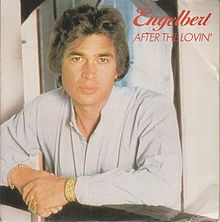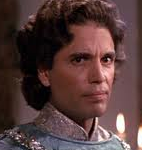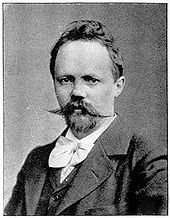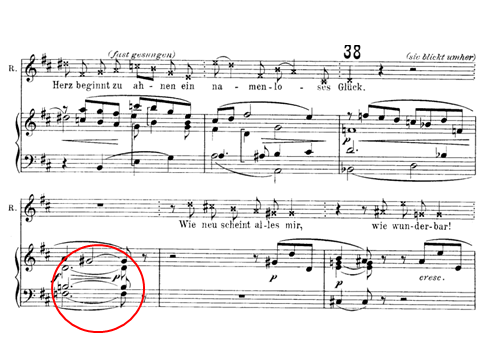I’m Listening to Everything Composed by Engelbert Humperdinck
September 1, 2013TITLE: Dornröschen (Sleeping Beauty)
In 1854 on this day, Engelbert Humperdinck was born! (Not to be confused with the pop singer of the 1960’s and 70’s. Also not to be confused with Prince Humperdinck of “The Princess Bride”)
NO
NO
YES
Were he still alive today, he’d be 154 years old. Happy B-day Humperdinck!
He is best-known for his opera “Hansel and Gretel.” If you don’t think you know it, here are two of the most famous melodies from it:
I saw it when I was a child and was completely entranced by it. For an opera it is relatively short (1 hour 45 minutes), and for some reason it has become traditional for opera companies to perform it near Christmastime and it is always marketed to young audiences (which is fine, but also limiting).
So as I was starting to write this post, I thought I’d pick a different, lesser-known piece by the birthday boy and I found that he had written an even shorter opera (1 hour 30 minutes) based on Sleeping Beauty. Here we go…
DESCRIPTION OF THE PIECE: Simply put, it’s great! I think it would look fantastic staged and I’m surprised more opera companies don’t do it regularly!
I hear a number of influences in this music. At times this opera sounds Wagnerian in terms of chord progressions, the interplay between singers and orchestra, etc. Another unusual thing is that Humperdinck is using the technique of sprechstimme (a type of singing in which the singer is supposed to speak on the indicated pitches—not sing, speak) for certain characters—a technique that is usually associated with the dissonant music of Arnold Schönberg. In the recording I found online (Naxos Music Library), only the evil fairy Dämonia uses sprechstimme, but in the vocal score it appears that many of the characters, including Dornröschen herself, are supposed to use this technique at various times. (If you’ve never seen sprechstimme look at the image below and you’ll see that instead of note heads, there are x’s). Incidentally, Humperdinck is the first composer to use this technique, many years before Schönberg!
I suppose this work has its cliché moments; all the choruses and arias are quite tuneful and fairly predictable. But I think this would be a real crowd-pleaser and might even win over some non-opera people to become opera people. Recordings of this are fairly hard to come by, so I’m going to include a few samples.
First, here is the beginning of an aria by Dornröschen (I’m going to call her “Dorny” from now on because it’s easier to type) called “Ich fuhl’ ein leises Bangen.” As you can hear, it starts out quite tuneful and fairly predictable.
This next clip is from later in the SAME aria but it has evolved into something really quite Wagnerian:
If you’re wondering what makes it Wagnerian, listen to this next clip from “Die Walküre” by Wagner and I think you’ll hear the similarities:
Same interplay between singers and orchestra, similar extended solo string passage, and doesn’t this chord (image below, circled) from Dorny’s “Ich fuhl…” sound almost like the Tristan chord?
I know that this chord contains a d-natural instead of the Tristan chord’s d-sharp, but still, the similarities are fairly obvious. Listen to them excerpted here—first you’ll hear the Tristan chord from “Tristan and Isolde” by Wagner, then you’ll hear the circled part of “Dornröschen” by Humperdinck, then Tristan again, then Dorny again. I think you’ll hear the similar nature of these two sections.
tristan -dornroschen comparison
HIGHLIGHT:
The scene where Dorny pricks her finger on the spindle. Dorny is in the tower approaching the spindle in fascination, singing about it, while down below in the palace, a celebration feast is taking place—the guests are singing about how happy they are that Dorny made it to her fifteenth birthday without falling to the curse, and, off to the side, the table master and the chef are arguing about various things. It’s a fantastic “ensemble” number (a musical number in an opera in which multiple characters are singing about their own individual thoughts and feelings, yet it all makes sense) and I’d love to see it staged. Can’t you see it? A banquet hall filling the stage and high above it a room in a tower. It would be so cool visually! Here’s the translation so you can follow along with the mp3 clip:
GUESTS: Lift your glasses thirsty drinkers, drink as long as life smiles on you!
Swing your glasses, merry drinkers, greet the sun’s radiant splendor!
It was in its golden sparkling shine that it ripened to gold, the sparkling wine!
Empty your glasses, happy drinkers, jubilate as long as life smiles on you!
DORNY (in the tower, singing to the spindle):
Always you’ll have to obey my wish and command,
Up and down, agile and nimble, swaying with a hop,
Spindle with a sharp point,
Spindle so pretty and fine,
Spindle that I’m never to touch,
Spindle so very dainty and sweet!
KING (in the banquet hall):
Prince Reinhold, who woos our Röschen, may this second glass be dedicated to him.
(GUESTS and DORNY overlapping)
GUESTS:
Hail!
Lift your glasses, happy drinkers, jubilate as long as there’s a song in your midst!
Swing your glasses, blessed drinkers, jubilate as long as joy shines our way,
As long as the song in its jubilation sounds, as long as joy enticingly shines our way!
Happy drinkers, empty your glasses, jubilate as long as life smiles on you!
DORNY: Always you’ll have to obey my wish and command,
Up and down, agile and nimble, swaying with a hop,
Spindle with a sharp point,
Spindle so pretty and fine,
Spindle that I’m never to touch,
Spindle so very dainty and sweet!
DORNY (after being pricked by the spindle): Oh Ouch!
DÄMONIA (evil fairy): In vain, O King, you’ve sent out messengers
Through city and country far and wide;
In your wisdom, in your power,
You haven’t thought of what lies close by.
Now sink into the dark night of the grave;
Thus Dämonia’s revenge is made good!
MORPHINA (one of the good fairies):
Sweet slumber, gentle rest, close both of her eyes!
May slumber weave a thick, grey veil over all life;
Slumber spread throughout every room, sweet slumber, dear dream!
DORNY (as she falls asleep): Sweet dream!
WHAT’S LEFT TO LISTEN TO BY HUMPERDINCK? A very huge amount. I have to admit I was surprised at how many works there are by him. If this is any indication of the quality of his work (despite some of the clichés) I think I’ll be listening to everything by Humperdinck (it’ll just take a long time!).



